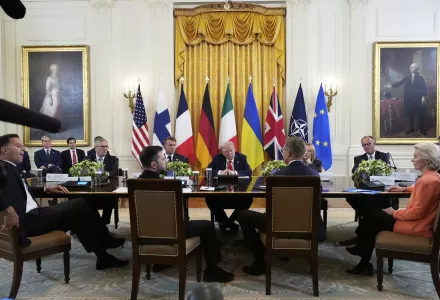Please join the Belfer Center’s Russia Matters for a discussion. From the top levels of Washington to the general public, polarization has become an inescapable fact of life in the U.S. During this discussion, the speakers will discuss the impacts of polarization on America’s foreign policy in general and on U.S. policies toward Russia, Ukraine and Eurasia in particular.
In-person option is open for Harvard University ID holders only. Webinar option is open to the public.
In-person registration here (Harvard University ID holders only). Webinar registration here.
Speakers:
- Gordon M. Friedrichs, senior research fellow at the Max Planck Institute for Comparative Public Law and International Law in Heidelberg.
- Ivan Arreguín-Toft, editor, Russia Matters.
Moderator:
- Angelina Flood, managing editor, Russia Matters.

